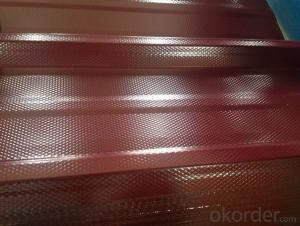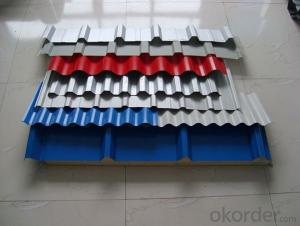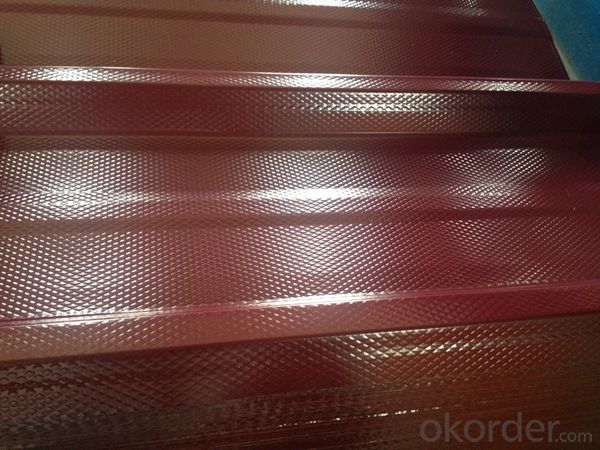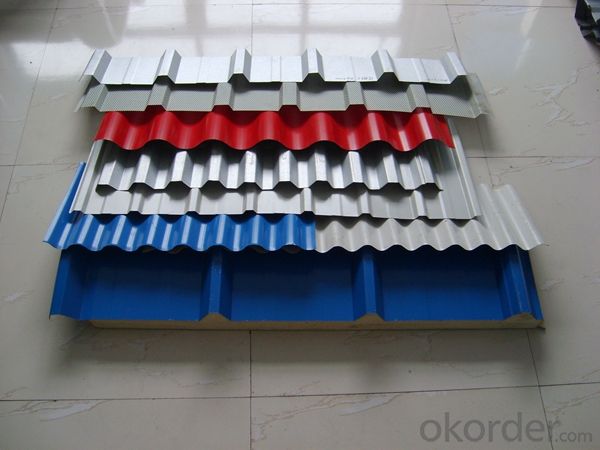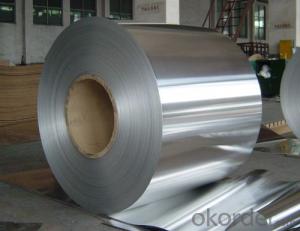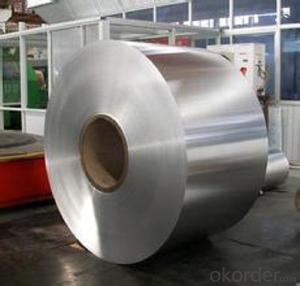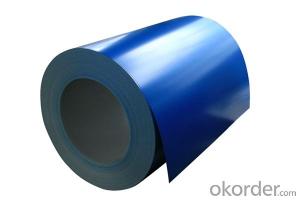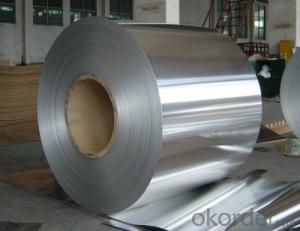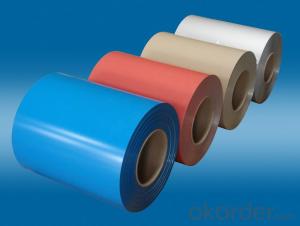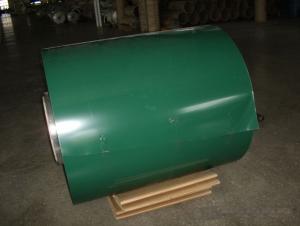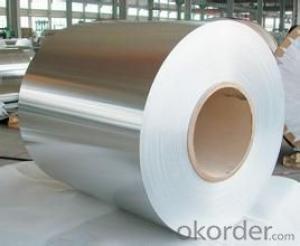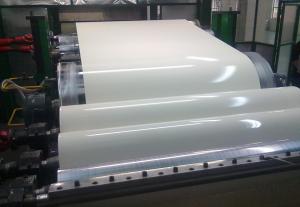Coil of Aluminum for Coating Metal Roofing System
- Loading Port:
- Shanghai
- Payment Terms:
- TT OR LC
- Min Order Qty:
- 5 m.t.
- Supply Capability:
- 10000 m.t./month
OKorder Service Pledge
OKorder Financial Service
You Might Also Like
Specification
1. Specification of Coating Aluminum Coil for Metal Roofing System
characteristics | Application |
1) Super peeling strength | 1) Building exterior curtain walls |
2) Excellent surface flatness and smoothness | 2) Decoration and renovation additions for old buildings |
3) Superior weather, corrosion, pollutant resistance | 3) Decoration of interior walls, ceilings, bathrooms, kitchens and balconies |
4) Even coating, various colors | 4) Shop door decorations |
5) Fireproof, excellent heat and sound insulation | 5) Advertisement board display platforms and signboards |
6) Superior impact resistance | 6) Wallboards and ceilings for tunnels |
7) Lightweight and easy to process | 7) Industrial materials, materials for vehicles and boats |
2. Application of Coating Aluminum Coil for Metal Roofing System
(1).Interior: wall cladding, ceilings, bathrooms, kitchens and balconies, shutters, doors...
(2).Exterior: wall cladding, facades, roofing, canopies, tunnels,column covers , renovations...
(3).Advertisement: display platforms, signboards, fascia, shop fronts...
3. Feature of Coating Aluminum Coil for Metal Roofing System
*Such coil is specially designed to replace aluminum ingot, due to the high export tax of aluminum ingot, the coil has better price than ingot.
*This type of coil can fit customer's remelting furnace just like ingot, no need to make any change to the production line that was previously used for ingot. The standard coil size and weight is very suitable for the feed gate of furnace.
*This type of coil causes less material wastage than ingot when remelted.
*Our coil is made directly from ore, no need to go though the ingot making process, quality is much better than other suppliers who use ingot scrap to make coil.
Be free from Oil Stain, Dent, Inclusion, Scratches, Stain, Oxide Dicoloration, Breaks, Corrosion, Roll Marks, Dirt Streaks and other defect which will interfere with use
4. Certificate:
SGS and ROHS(if client request, paid by client), MTC(plant provided), Certificate of Origin(FORM A, FORM E, CO), Bureau Veritas and SGS (if client request, paid by client), CIQS certificate
5. Image of Coating Aluminum Coil for Metal Roofing System
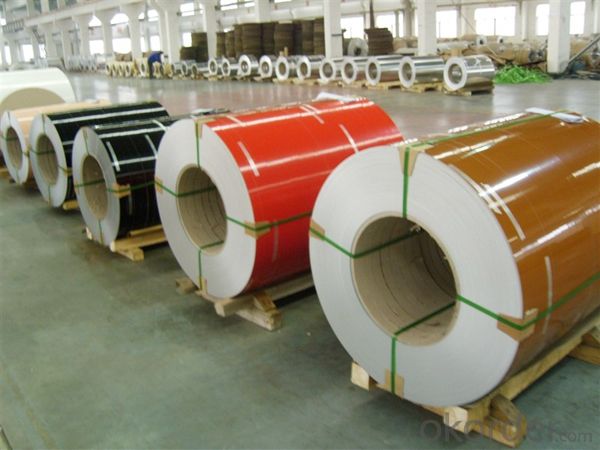
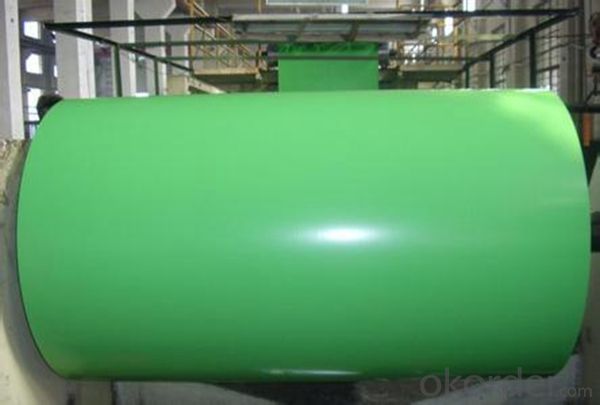
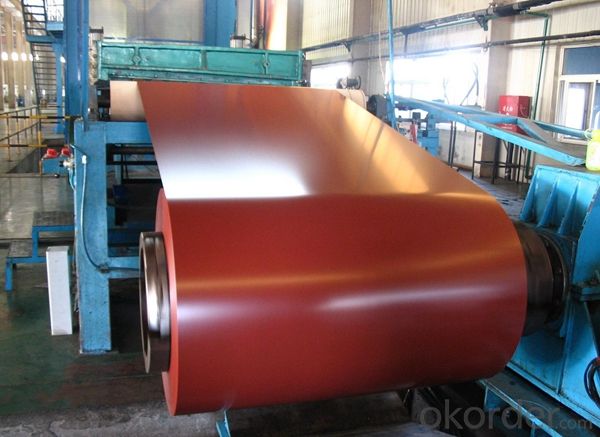
6. Package and shipping of Coating Aluminum Coil for Metal Roofing System
eye to wall
eye to the wall
with wood pallet (wooded case also available)
7. FAQ
1) What is the delivery time?
Dpends on actual order, around 20 to 35 days
2)What is the QC system:
We have QC staff of 20 persons and advanced equipment, each production is with MTC traced from Aluminum ingot lot.
3) What market do you mainly sell to?
Australia, America, Asia, Middle East, Western Europe, Africa etc
- Q: What is the role of aluminum coils in the construction of ships?
- Aluminum coils play a crucial role in the construction of ships, particularly in the marine industry. These coils are used to manufacture various components and structures that are essential for shipbuilding. One of the main advantages of using aluminum coils in ship construction is their lightweight nature. Aluminum is significantly lighter than traditional steel, which allows for increased fuel efficiency and better overall performance of the ship. This is particularly important for larger vessels, as reducing weight helps to minimize energy consumption and operating costs. Additionally, aluminum coils offer excellent corrosion resistance, making them ideal for the marine environment. Ships constantly face exposure to saltwater, which can be highly corrosive to metals. By using aluminum coils, shipbuilders can ensure that their vessels are better protected against rust and corrosion, ultimately increasing their lifespan and reducing maintenance requirements. Moreover, aluminum coils can be easily shaped and formed into various structures, offering greater design flexibility for shipbuilders. This versatility allows for the creation of complex and intricate ship components, such as hulls, superstructures, and bulkheads. Aluminum's excellent weldability also makes it easier to join different sections of the ship together, resulting in a more efficient and streamlined construction process. Furthermore, aluminum is a highly sustainable material. It is 100% recyclable, meaning that it can be reused without any loss in quality or performance. This makes aluminum coils an environmentally friendly choice for ship construction, aligning with the increasing emphasis on sustainability in the industry. In summary, the role of aluminum coils in ship construction is multifaceted. They provide lightweight, corrosion-resistant, and easily formable materials that contribute to improved fuel efficiency, durability, and design flexibility. Moreover, their recyclability makes them an environmentally conscious option. Overall, aluminum coils are a vital component in building ships that are efficient, durable, and sustainable.
- Q: What is the role of aluminum coils in the transportation industry?
- Due to their numerous advantageous properties, aluminum coils play a crucial role in the transportation industry. One of their primary uses is in manufacturing transportation vehicles, including cars, trucks, trains, and airplanes. Aluminum, being a lightweight material with a significantly lower density than steel, is an ideal choice for enhancing fuel efficiency and reducing weight in transportation systems. The use of aluminum coils in transportation vehicles offers several benefits. Firstly, their lightweight nature helps increase fuel efficiency by reducing the energy required for movement. This results in lower fuel consumption, reduced greenhouse gas emissions, and cost savings for transportation companies. Additionally, aluminum coils possess excellent corrosion resistance properties, enabling transportation vehicles to withstand harsh weather conditions such as rain, snow, and exposure to salt. This durability is particularly important for vehicles operating in coastal or snowy areas. The resistance to corrosion also extends the lifespan of the vehicles, reducing maintenance costs. Furthermore, aluminum coils have a high strength-to-weight ratio, making them a reliable choice for structural components in transportation vehicles. This strength allows manufacturers to design lighter and more efficient vehicles without compromising safety or durability. Moreover, the use of aluminum coils contributes to the sustainability efforts of the transportation industry. Aluminum is highly recyclable, and the recycling process requires significantly less energy compared to its initial production. By utilizing aluminum coils in transportation vehicles, the industry can minimize its environmental impact and reduce reliance on non-renewable resources. In conclusion, aluminum coils play a pivotal role in the transportation industry by enhancing fuel efficiency, providing corrosion resistance, enabling lightweight design, offering structural strength, and promoting sustainability. Their use in manufacturing transportation vehicles leads to cost savings, reduced emissions, improved durability, and enhanced overall efficiency in the transportation sector.
- Q: Is it possible to recycle aluminum coils without any loss in their quality?
- <p>Yes, aluminum coils can be recycled without damaging their quality. Aluminum is one of the most recycled materials due to its ability to be recycled indefinitely without any loss in quality. The recycling process involves melting the aluminum, which can then be reshaped into new coils or other products. This process is energy-efficient and environmentally friendly, as it requires significantly less energy than producing aluminum from raw materials. Recycled aluminum maintains the same strength, durability, and appearance as new aluminum, making it a sustainable choice for various applications.</p>
- Q: What is virgin aluminum? I can't find anything about it, is it just another word for aluminum? Is there a difference?
- Aluminum that contains no recycled aluminum.
- Q: Can aluminum coils be used in the production of cookware?
- Yes, aluminum coils can be used in the production of cookware. Aluminum is a popular choice for cookware manufacturing due to its excellent heat conductivity, lightweight nature, and affordability. Aluminum coils can be shaped and formed into various cookware items such as pots, pans, and baking sheets, providing efficient and even heat distribution for cooking purposes.
- Q: Are aluminum coils compatible with different joining methods?
- Yes, aluminum coils are compatible with different joining methods. Aluminum is a highly versatile metal that can be joined using various techniques such as welding, brazing, soldering, and mechanical fastening. The choice of joining method depends on the specific application and the desired properties of the joint. Welding is commonly used to join aluminum coils as it provides a strong and durable bond. Several welding techniques like MIG (Metal Inert Gas), TIG (Tungsten Inert Gas), and resistance welding can be used depending on the thickness and type of aluminum alloy being joined. Brazing is another effective method for joining aluminum coils. It involves the use of a filler material that has a lower melting point than the base metal, which is heated to create a strong joint. Brazing is commonly used when the aluminum coils need to be joined to other dissimilar metals. Soldering is suitable for joining thin aluminum coils or when a lower temperature method is required. It involves melting a low-temperature alloy (solder) to join the coils together. Soldering is commonly used in electronics and plumbing applications. Mechanical fastening methods such as bolts, screws, rivets, or clips can also be used to join aluminum coils. These methods provide a reliable and removable joint, making them suitable for applications where disassembly may be required. In summary, aluminum coils are compatible with various joining methods, including welding, brazing, soldering, and mechanical fastening. The choice of joining method depends on factors such as the application, the type of aluminum alloy, and the desired properties of the joint.
- Q: Dongying power plant with 0.6mm thick insulation aluminum coil, manufacturers can be divided into small volumes?
- How wide is the inside diameter of an aluminum roll; a roll of multiple. Small volume of MOQ is required.
- Q: I heard that one pound of aluminum pop tabs are worth more then a pound of aluminum pop cans. Is this true? Thank you.
- yup.. but not to you. You get the same ammount turning in the tabs as you would the whole can. They can process the tabs faster and more efficently due to lack of extra printed on them.
- Q: Will aluminum foil go off in a metal detector
- aluminum is undectable if you wrap your eay pass in it it wont register. i tried it. and a feriday cage wraped in tinfoil will block all signals to everything
- Q: What is the difference between aluminum plate and aluminum coil?
- A sheet is flat, one by one for storage, one for coil material, one roll for storage, but aluminum coil can be leveled by machine, that is aluminum plate.
Send your message to us
Coil of Aluminum for Coating Metal Roofing System
- Loading Port:
- Shanghai
- Payment Terms:
- TT OR LC
- Min Order Qty:
- 5 m.t.
- Supply Capability:
- 10000 m.t./month
OKorder Service Pledge
OKorder Financial Service
Similar products
Hot products
Hot Searches
Related keywords
